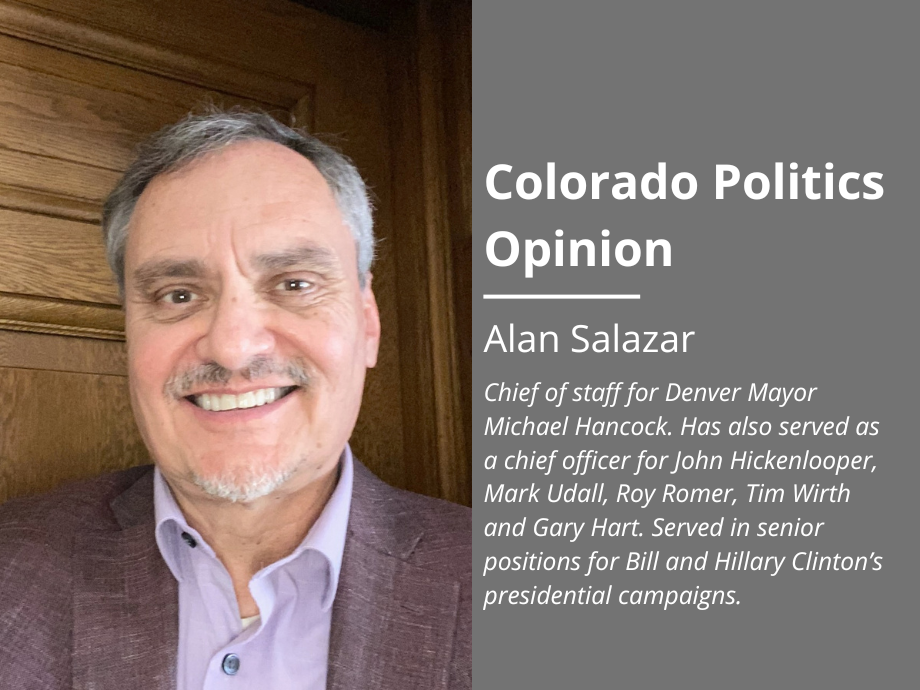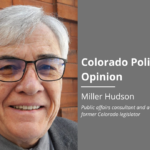Reality beats ideology in battling addiction | SALAZAR


Six years ago, about the same time I started as the new chief of staff for Denver’s mayor, Michael Hancock, I had no idea there was another man, a bit younger than me, starting a different and more challenging time hundreds of miles away in California. I was walking to a new job in Denver. He was walking the streets of San Francisco, homeless and suffering from drug addiction.
That man is Tom Wolf. You can find him on Twitter at @Twolfrecovery.
Tom has a remarkable and inspiring story. His life took a turn for the worse after drug addiction sent him into a destructive spiral. He put at risk his relationship with a loving spouse and their children. He will tell you there are multiple paths to recovery, but his path only came clear after hitting rock bottom, arrest and jail time. It was hard reality that turned his life from despair to purpose.
Thankfully, Tom overcame his drug addiction, and is now a leading national voice for addiction recovery, mandated treatment services and accountable approaches to street intervention for people experiencing homelessness.
Stay up to speed: Sign-up for daily opinion in your inbox Monday-Friday
I had no idea our paths would eventually cross, no idea we would become online friends and no idea I would be seeking his advice and perspective on the challenges cities are facing in the post-COVID era. But when the fentanyl crisis hit Denver in a big way two years ago, I began to educate myself on the national opioid epidemic. That led me to the writings of Sam Quinones, a journalist-author whose books and articles have brought fentanyl and methamphetamine into stark public focus.
Conversations with Sam (who made time to meet with Mayor Hancock and our entire team in 2022) ultimately led me to Tom Wolf. It’s a relationship I deeply appreciate. Not only is Tom a compassionate person, but he also has a deep understanding of the public policy connections linking the proliferation of unsheltered homelessness, illicit drug trafficking, public health and public safety.
Tom made it out to Denver two weeks ago, and we were able to spend some time together. He was in town to share his insights on how San Francisco has been impacted by the fentanyl epidemic, and how a failure to combine effective public health and public safety initiatives has exacerbated the city’s problems.
Tom’s basic message for Denver is that we avoid what he believes to be failed policies in his hometown of San Francisco. He’s an outspoken critic of drug treatment policies that are exclusively focused on “harm reduction,” and he insists, largely because of his own lived experience, that we need to maintain prohibitions on open illicit drug use. He supports legal penalties that carry jail time or the threat of jail time – not to lock people up, but to get them into effective recovery.
There is an important debate among public health experts about how best to save lives and discourage illicit drug abuse, drawing from some of the obvious failures from what we used to call “the war on drugs.” Tom makes the point that unlike drugs from the past, fentanyl is a game changer, not only because it is deadly in small amounts and highly addictive, but it is also very cheap. More people get hooked, it has a corrosive impact on brain chemistry, and is so toxic that tolerating any level of permissive unprescribed recreational use is dangerous, not only to users, but to others.
Alarmingly, fentanyl is now the leading cause of death for young Americans. The epidemic is national in scope and well beyond the borders of San Francisco or Denver.
The truth is no city has the personnel, resources or budget to boil this immense ocean of pain on its own.
The only approach that makes sense is to insist that federal, state, regional and local governments collaborate with non-profits across all jurisdictions to invest in public health infrastructure we have long neglected. This will take time and funding for beds and other medical services. But it will also require additional support for law enforcement, changes in statute to ensure drug courts work to get people into recovery programs, and an explicit awareness that public health not be at odds with public safety.
Tom’s call is that we put aside ideological blinders and seek what is pragmatic, accountable and aligned with the complexity of human nature. It is wisdom we should apply to many of our problems, not just the opioid epidemic.
Alan Salazar is chief of staff for Denver Mayor Michael Hancock. Salazar has served as chief strategy officer for Democratic former Colorado Gov. John Hickenlooper; as chief of staff to former U.S. Rep. and later U.S. Sen. Mark Udall; as deputy chief of staff and policy director for former Colorado Gov. Roy Romer, and in key staff posts for former Colorado U.S. Sens. Tim Wirth and Gary Hart.













